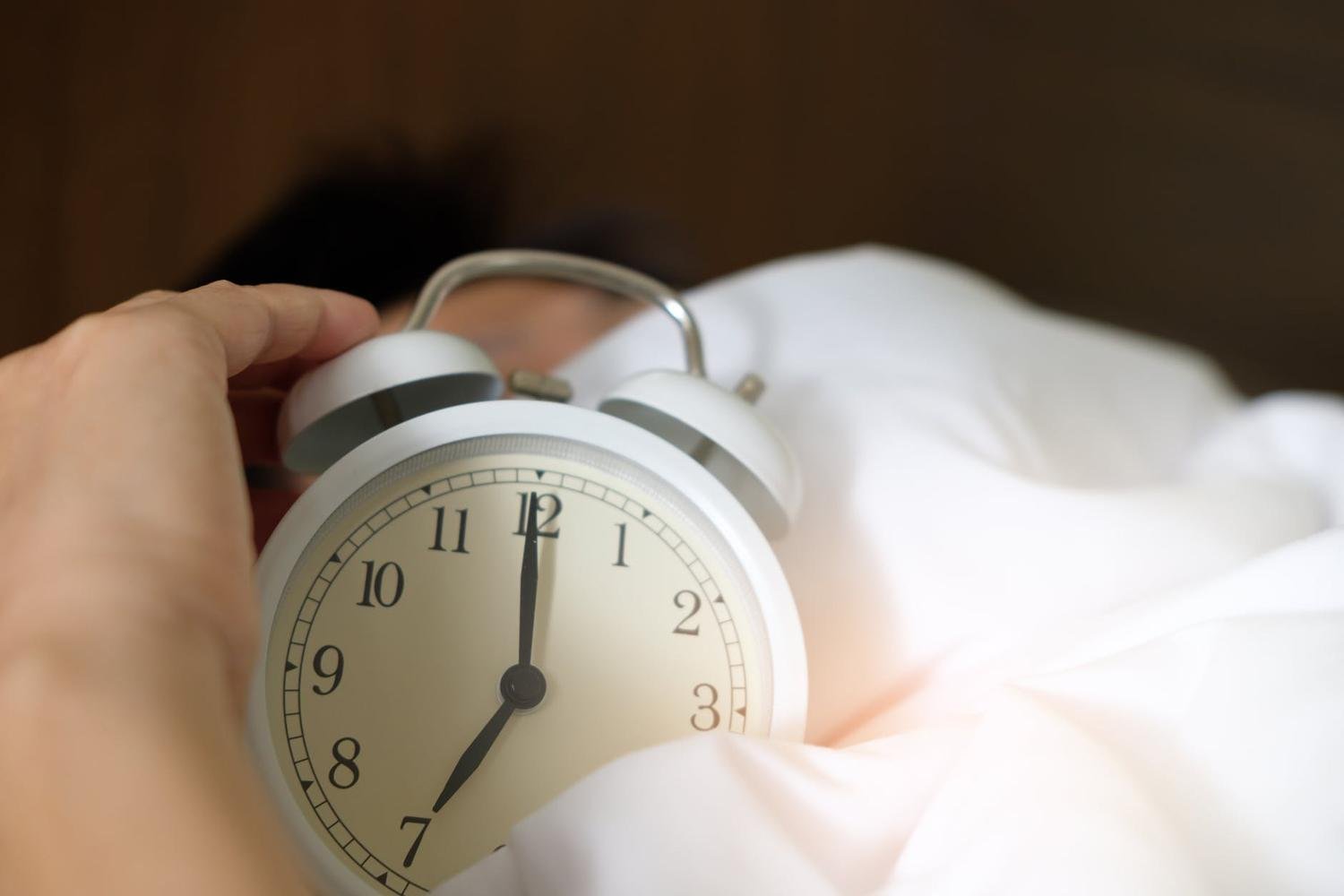
What's Your Sleep Chronotype?
If someone asks if you’re an early bird or a night owl, you probably have a ready answer—unless, of course, you’re a hummingbird. Hearing “What’s your chronotype?” however, may only spark a lot of questions… What’s a Chronotype?How do I know what mine is? Why does it matter?
Your sleep chronotype primarily reflects your individual predisposition toward sleep and wake times—but while it’s a similar concept to the "birds" analogy, it’s more of a tool for improving your overall well-being. It reveals how archetypal influences affect not just time preferences for your sleep—but also for other daily functions—including eating and exercise… and how you interact with the rest of the world.
Knowing your chronotype helps you understand how your body dispenses energy throughout the day. Working with these rhythms, rather than against them, you’ll be able to manage your energy levels and boost productivity. You'll begin to feel better and sleep better. And that, is why it matters.
Is this something new?
The earliest recordings of chronobiology study date back to the early 1700’s. A more developed archetypal concept eventually emerged through analysis of a 1976 sleep cycle questionnaire. Early on, the chronotype was primarily recognized as a dichotomous personality trait; represented by both psychological and physiological processes.
The 1976 research team established that the psychological component represented sleep-wake behaviors being controlled by the study participants… and found those individuals’ internal circadian clocks, governed the physiological processes. Today’s more comprehensive understanding of this science allows us to plan our days around positive behaviors that support healthier lifestyle choices. In this way, each archetype can better meet their body’s specific needs.
Where'd we get Today's Chronotypes?
Sleep expert, Dr Michael Breus, introduced our modern chronotypes, using mammal symbology rather than birds—makes sense. Since we too are mammals, the updated archetype symbols are more relatable.
Basic Chronobiological Behaviors — Can you identify with one more than the others?
- Bears:These folks are up early and like to ease into their day—they’re most productive late morning through early afternoon—and are typically good sleepers—great sleepers if they follow a few rules.
- Dolphins: Waking up and falling asleep are most difficult for this type—overactive brains are often to blame so relaxation techniques help— grogginess is likely in the early AM without a brisk workout.
- Lions: Wake up early and ready to seize the day—they are most productive in the morning—and because they’re disciplined with sleep and other behaviors, sleep issues are typically rare.
- Wolves: Are up late and wake up later in the day—they’re most productive late afternoon/early evening—they typically experience poor sleep that can lead to chronic health issues if not careful.
You’ve probably noted there are four archetypes rather than three—as per the bird model. Dr Breus found during his studies on sleep disorders, about 10% of the population with unique sleep drives. Theirs were basically upside down from the other three archetypes—placing them in a unique new category—and requiring an additional Sleep Chronotype.
How do I discover my Chronotype?
A quick online quiz developed by Dr Breus, will provide you a detailed analysis of your chrono-archetype with many helpful tips for managing your sleep—and overall life—direct to your in-box. A link to The Sleep Doctor website is provided below…
Now that we know a little about sleep types and how they came to be, let’s have a look at the four archetypes and their characteristics in a little more detail. If you’re unable to guess your chronotype based on your sleep patterns and behaviors, there’s a good chance you’ll recognize yourself in some of the personality traits.
The primary goal for each of the archetypes is to maintain properly aligned circadian rhythms--most importantly, their sleep-wake cycle. This ensures greater productivity during the day and sets you up for a good night's sleep each night.
Recognizing Your Chronotype

The Bear Chronotype
Roughly 50% of us are bears and closely follow a solar bio schedule—Bears naturally wake up early. Because they hold the majority, the Bear’s chronotype schedule has a high social influence on daily schedules for the rest of the population. In fact, you could safely say our society more or less runs on Bear time.
Nice for the Bears, but maybe not so much for those whose biology dictates a different sleep schedule. Ever wonder why you have to get up so early for work or school?Are you ready for dinner at 6 pm—or just conforming to when bears like their supper? Want to go to bed at 9 but there’s a bear prowling the house or watching tv?
Oh, those lucky bears! More significantly, Bears enjoy fewer natural sleep issues than some other archetypes—and the issues they do have are mainly self-inflicted (which means they’re correctable.)
Sleep Issues for Bears
Bears have a high sleep drive and tend to sleep deeply—however, they are notoriously inconsistent when it comes to their sleep routines. Under-sleeping on weekdays and trying to make up for it on weekends doesn’t serve the Bear well. Inconsistent and insufficient sleep leads to total disruption of their circadian clocks and can put those clocks out of sync indefinitely.
They are also challenged when it comes to weight-gain. This can lead to serious sleep and health issues like Snoring and Sleep Apnea. (Perhaps this is where we get the term “snores like a bear?”) Here again, their Bear proclivities come into play. It’s not so much that they’re prone to gaining weight, but that if food is nearby, they have trouble resisting it.
Sleep Suggestions for you Bear Chronotypes
Bears need to learn to stop living in opposition to the clock so they can enjoy their inherent sleep blessings. Getting a full 8 hours each night will help you thrive. Eating the right food at the right times—and starting your day with some exercise—will help you get those vital 8 hours.
When Bears are most productive
Bears hunt all day but are most alert from late morning through early afternoon—this is when their productivity is at its highest. They will often experience an afternoon slump—typically between 2-4 pm.
Is the Bear Your Archetype?
Bear Personality Traits
Bears are easy-going team-players with can-do attitudes. They’re open-minded, enjoy collaboration, are balanced thinkers and don’t often “do drama.” Bears prioritize happiness and tend to avoid risk and conflict.
Dolphins make up only 10% of the population. In contrast to the other archetypes, their sleep is upside down.

The Dolphin Chronotype
Dolphins—the rarest sleep type at only 10% of the population--usually sleep fewer than 6 hours per night. Their particular set of sleep preferences and behaviors are distinctly different than those of the other archetypes making for problematic and ineffective sleep.
Sleep Issues for Dolphins
These light and restless sleepers find it difficult to fall asleep and stay asleep. Because of their unique circadian biology, their sleep cycles are upended so to speak—causing them to feel chronically fatigued during the daytime and restless and high-strung at night—minds racing and on high-alert.
Sleep Suggestions for Dolphins
Dolphins will benefit from a regular evening wind-down focused on relaxing their frazzled nerves. A warm bath, some aromatherapy and a not-too-stimulating book are just the thing—no screens or other tech. And because they’re sensitive to light and noise, a dark and quiet bedroom is a must.
When Dolphins are most productive
Dolphins should tackle demanding tasks between late morning and noon. Coffee isn’t out of the question but avoid drinking too much as it can make your typical afternoon slump turn into a crash. If you’re sleepy, opt for a brisk walk rather than a nap.
Is Your Archetype the Dolphin?
Dolphin Personality Traits
Cautious, detail-oriented and highly intelligent, Dolphins are good at thinking on their feet and prefer to follow their intuition. They are often anxious and are well-known to be perfectionists.

The Lions’ disciplined natures set them up for better overall health—as well as typically problem-freesleep.
The Lion Chronotype
Lions are only slightly less rare at 15-20% of the population Like Bears, they too are lucky when it comes to sleeping well naturally. Unlike Bears, they are disciplined about their sleep routines which typically include early bedtimes—showing the rest of us how much more productive it is to work with, not against, our internal clock.
Because of their disciplined nature, they’re also comfortable with routine in other areas of their lives and tend to exercise moderation in their habits. This benefits their overall health as well as their sleep efficacy—It has also been observed that “morning types” who go to bed early have been linked to lower risk for obesity and heart disease.
Sleep Issues for Lions
What sleep issues? Lions are good sleepers with medium sleep drive. They report few sleep issues generally and find sticking to an early bedtime pretty much effortless.
Sleep Suggestions for this group?
Keep doing what comes naturally! Continue exercising that amazing discipline and practicing good sleep hygiene—and if you happen to be one of those rare Lions experiencing some type of sleep issue, Dr Breus has a wealth of information to help sort you out.
That said, do make sure to stick with your early bedtime to replenish all that energy you expend in pursuit of your goals.
When Lions are most productive
Lions are morning hunters too and wake up ready to pounce on their projects. That go-getter energy typically lasts through early afternoon, but it can’t last forever. Expect an energy crash to follow a couple of hours after lunchtime—so if you have a 2 PM meeting, make sure you don’t eat lunch too early.
Could the Lion be Your Archetype?
Lion Personality Traits
Natural optimism, boundless energy, a forceful drive—and charisma—make lions natural leaders. They are social beasts, but don’t expect to find them partying during the week. That would undermine the Lion’s faithful effort to succeed in all their endeavors.
Don’t expect too much from the Wolf before noon...

The Wolf Chronotype
Wolves make up 15-20% of the population as well, but when the Lion is leaping into the day, the Wolf is (or at least wants to be) fast asleep. Because they prefer to keep evening hours, you’ll often find Wolves socializing into the wee hours or working “late shift” jobs.
Following these odd hours, the Wolf struggles to rise with the rest of the world. If you’re relying on a wolf to show up for anything before noon—that may be a bad plan.
Sleep Issues for Wolves
The Wolves’ unconventional schedules make them especially susceptible to insufficient sleep—and therefore more at risk for chronic illnesses like heart disease, diabetes, and depression.
Sleep Suggestions for Wolves
Make sure you’re getting at least 7 hours of sleep each night—and strive to hit the hay by midnight. This compromise can help even out the conflict between your sleep preferences and other people’s expectations—which should leave you less stressed. To help you unwind, try something soothing like pink noise—it helps calm your mind so you can fall asleep more easily and get more rejuvenating sleep.
When Wolves are most productive
While wolves get an energy boost late in the morning, they are most productive when the other chronotypes are already in bed. They are ideally suited to shift work or other nighttime jobs that allow them to follow their innate sleep preferences.
Is the Wolf Your Archetype?
Wolf Personality Traits
Wolves are impulsive, risk-taking, thrill-seeking, adventurers. They are highly intelligent, playful, creative, caring--and place a high priority on family needs.
To sum it all up...
Everyone’s sleep needs are different. Learning about Chronotypes is one way to help you meet your needs. While there are only four archetypes, some people may find they’re a blended chronotype. In fact, Bears are particularly likely to be part of a hybrid chronotype.
It’s also possible that your chronotype may change over the course of time or due to life circumstances.
What’s fixed, according to studies of this science, is that these biorhythm patterns and preferences continue through time to be constant influences—regardless of gender, race, or socioeconomic circumstance.
Still wondering which Archetype is yours? Take the Sleep doctor's chronotype quiz to better understand your personal sleep biology!
Over to you...
The information above is just a brief overview of the Four Chronotypes. Many more insights are available through Dr Breus who literally wrote the book on modern chronobiology (The Power of When.) What will you find in his book?
Basically, it will tell you the best time of day for you to do pretty much anything—according to your personal chronotype.
From when to eat, when to exercise, when to take your medication—to when to ask for a raise—
and what time you should or shouldn’t have a cup of coffee...
These helpful pointers will steer you toward better sleep—and better overall health. Learn more about this fascinating bio science at www.thesleepdoctor.com.































